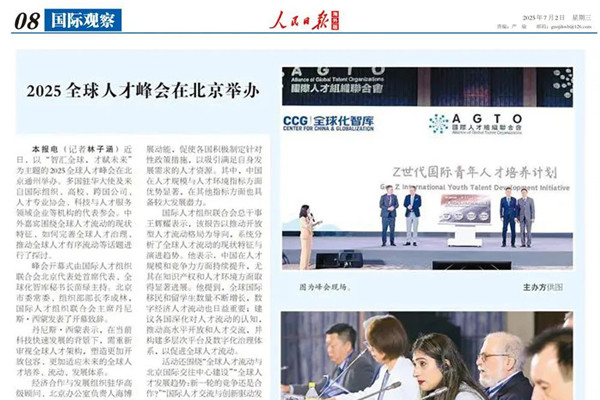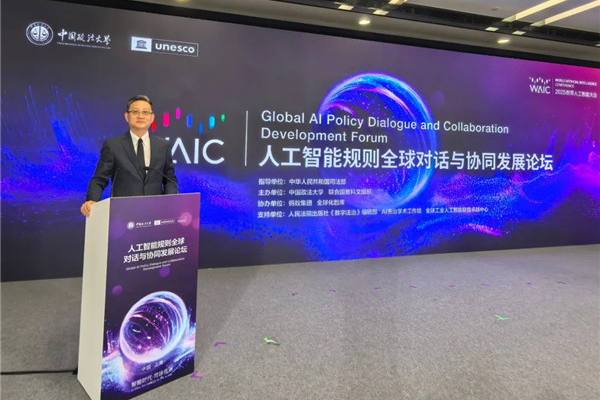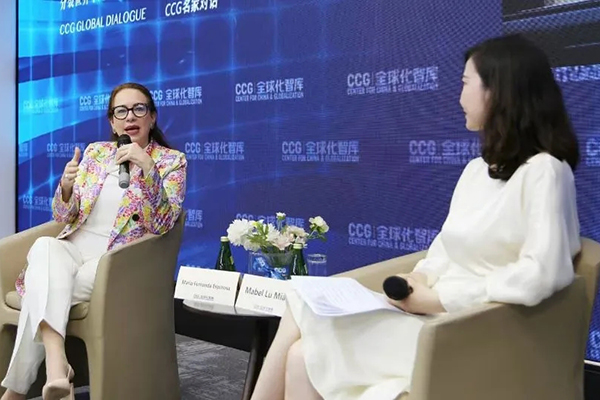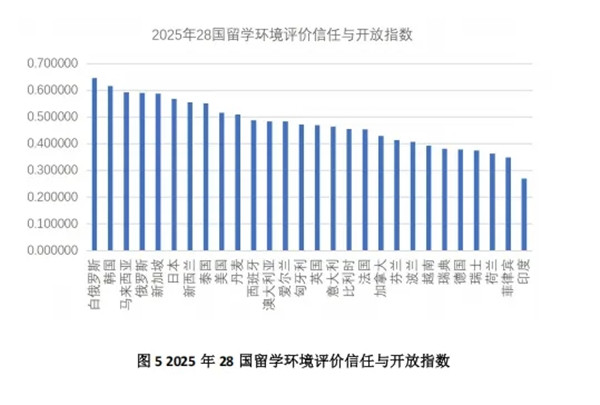【Sino-US.com】China unveils first book series on human resource development
2018年1月16日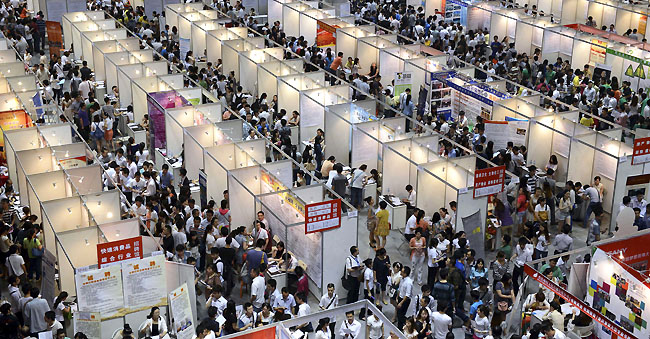
Chinese job seekers visit a job fair in southwest China’s Chongqing Municipality. Photo: AP
China has unveiled its first book series on human resource development amid its ongoing emphasis on human resource as a key driver of national development.
Jointly published by the Chinese Academy of Personnel Science and Party Building Books Publishing House, the book series called “Foreign Talent Development Series” consist of 18 books and is part of a publication project under the country’s top-down strategy to empower the country by “creating a high-quality talent pool,” or “ren cai qiang guo” scheme.
The book project which started in 2013 and concluded at the end of 2017 is the first time that China systematically and comprehensively introduced the implementation and development of the scheme, according to Wang Huiyao, founder of the think tank Center for China and Globalization (CCG).
The book series which is in Chinese Mandarin include both translations of works on foreign countries’ policies and experiences on human resource management, and Chinese domestic experts’ research in this sector. More than 20 Chinese experts specialized in human resource studies participated in the writing of the book, according to CCG.
“By comprehensively introducing foreign countries’ policies and experiences, the book series have a significant value for China to refer to” in building its own system of talent management, said Wang Xiaochu, former vice director of China’s Ministry of Human Resources and Social Security, on Wednesday in Beijing.
According to Wang, the project is a response to Chinese President Xi Jinping’s call for valuing people with talent in the country’s development since the 18th National Congress of the Communist Party of China in 2012. During the 19th Party Congress last October, Xi once again noted the importance of talent in building up China’s national power.
"We should value people with talent, be good at identifying talent, have the foresight to employ them, be earnest to keep them, and welcome them into our ranks," Xi said at the time.
Under Xi’s call, China has also been trying to make the country more attractive for foreign highly skilled people to live and work, by rolling out a series of visa policies in recent years.
During a meeting with 50 foreign experts in Shanghai back in May 2014, Xi said the country must implement a more open policy for talented workers, to bring in talent no matter where it comes from, make the most use of it and trust it fully, according to Chinese state media China Daily.
In its latest effort, China has rolled out a new visa policy for foreign “high-skilled” workers, which will allow them to apply for a five-ten year visa with multiple entries and 180-day-stay for a single entry. While the new policy also allows an applicant’s spouse and children to gain the visa, the applicant should first get the Certificate for Foreign High-end Talent issued by the Beijing bureau of the State Administration of Foreign Experts Affairs.
The State Administration of Foreign Experts Affairs said it has records of overseas workers entering China about 3.3 million times in the past five years, reported the China Daily.
In February 2016, China relaxed the country’s green card rules, extending eligibility for permanent residency to foreigners working in broader fields than just government departments or laboratories involved in “key national projects”.
Of all the provincial-level areas in China, Shanghai has the highest number of foreign workers, with about 215,000 of the city’s 24 million people coming from overseas, according to a recent report by the South China Morning Post.
However, while China is stepping up efforts to attract talents, experts also noted that there is still more that China needs to do to become a more competitive destination for international talents.
“The sense of belonging and integration into the Chinese society and culture is very important for foreigners after they come to China, which should be taken into consideration when making foreign-talent related policies. Humanistic concern is a very important aspect in encouraging foreign talents to come to China and in protecting talents,” said Liu Junyi, one of the writers of the book series.
From Sino-US.com,2018-1-11
